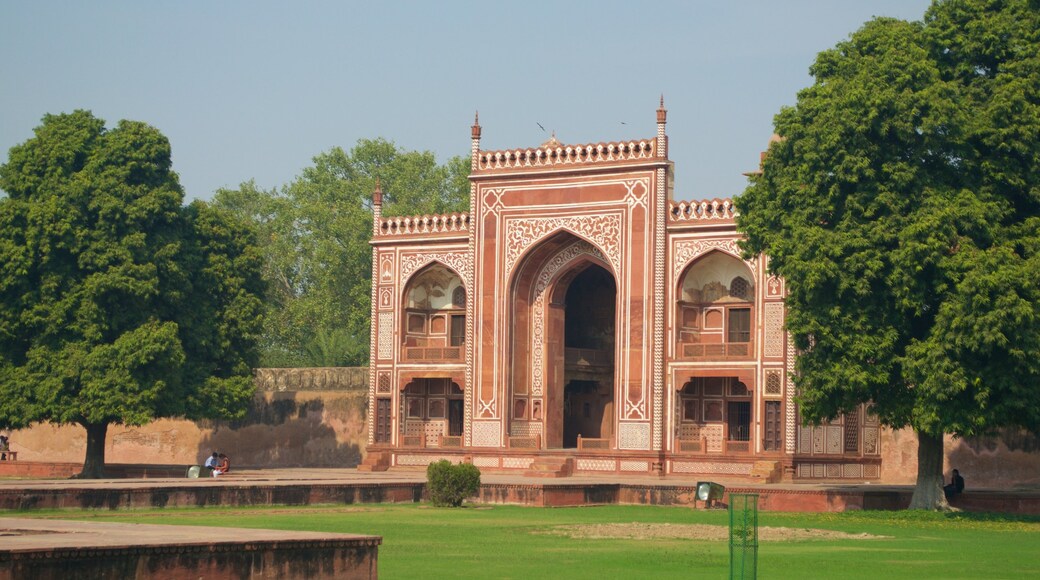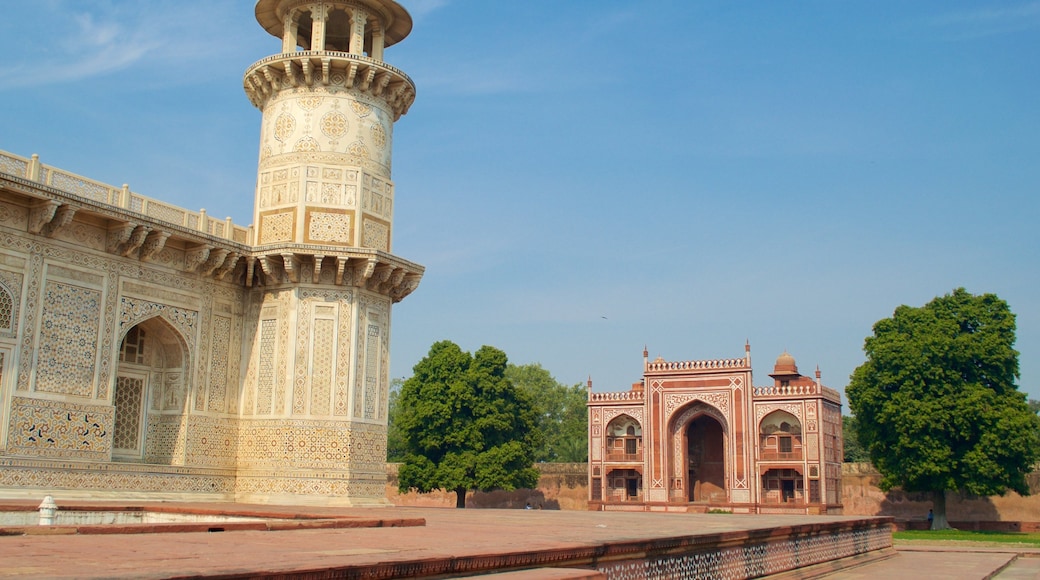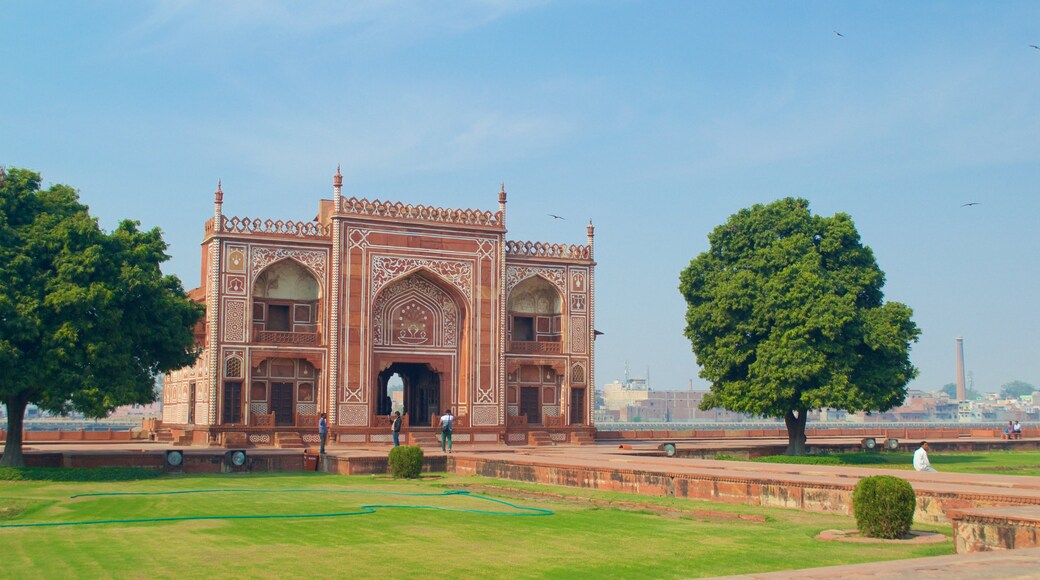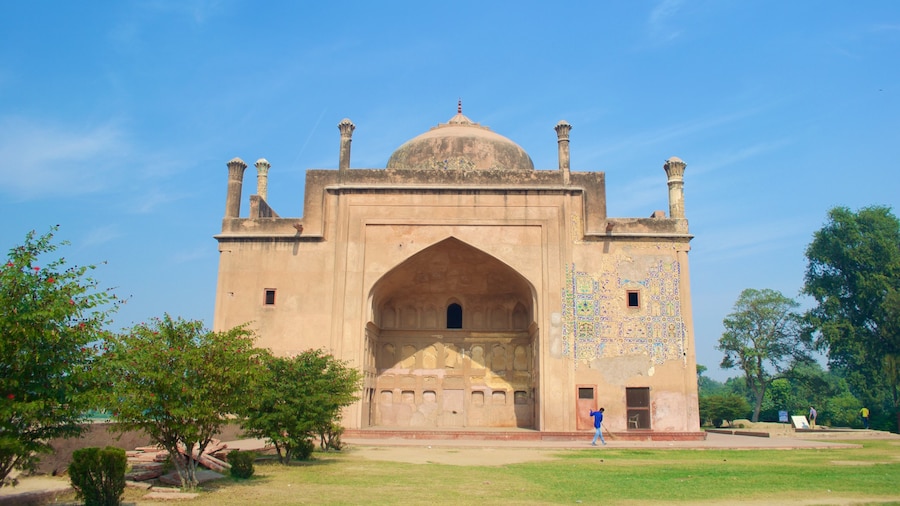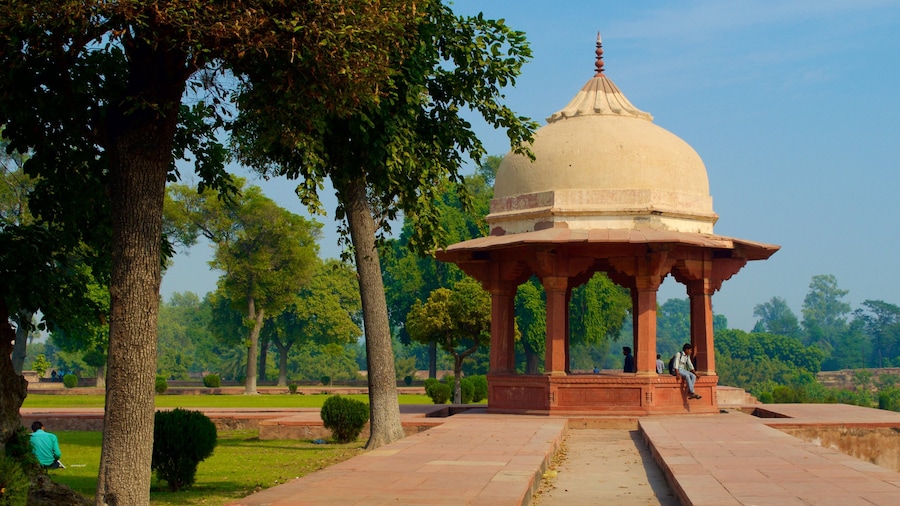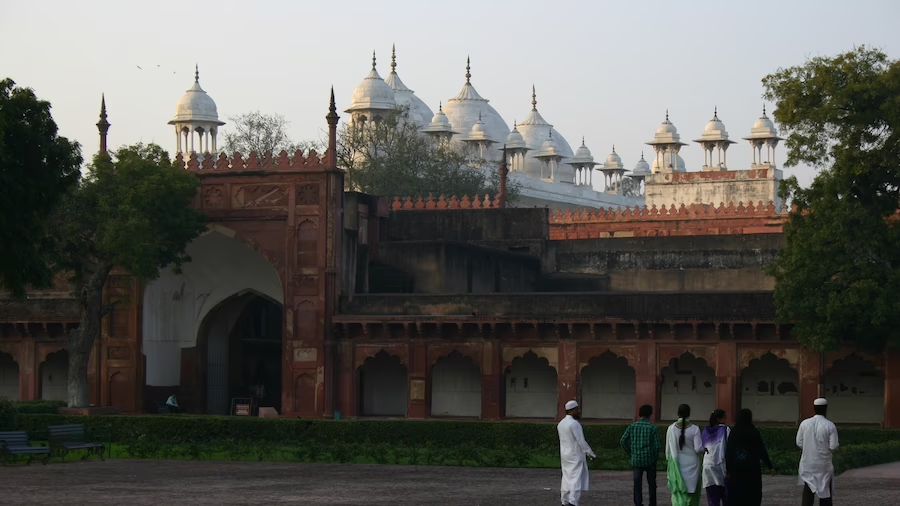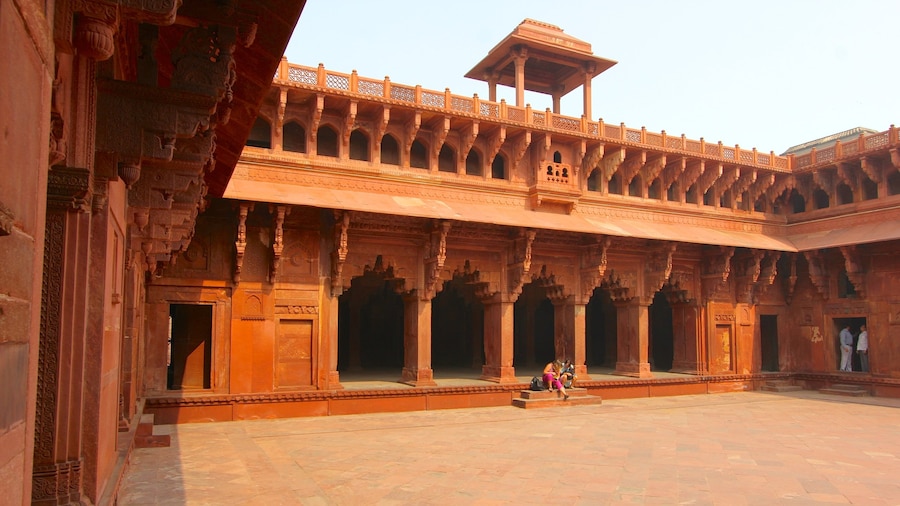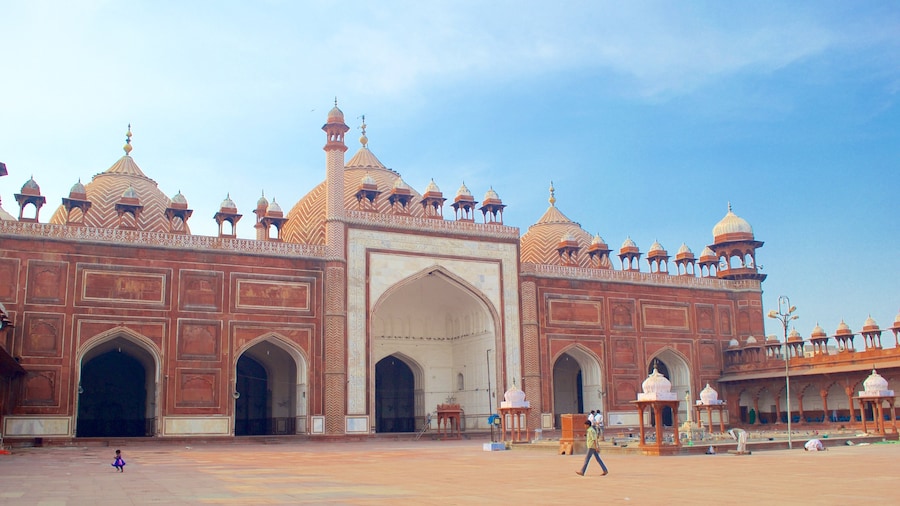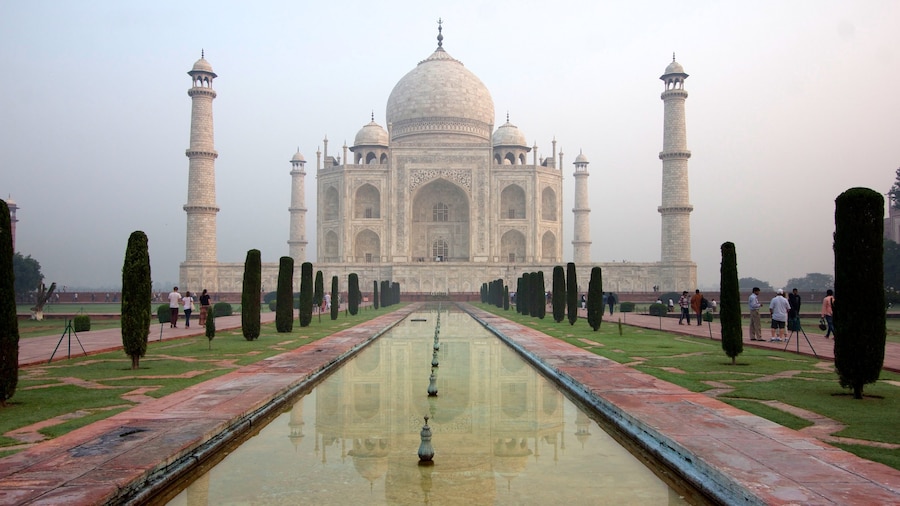Nicknamed the Baby Taj, this exquisite tomb is made of pure white marble and is known for its intricate and elaborate carvings.
Though smaller in size and much less well-known than the neighboring Taj Mahal, Itmad-ud-Daulah's Tomb still manages to impress visitors with its delicate inlays and eye-catching mosaics. Spend some time exploring this worthwhile site. The crowd-free riverside setting provides a calm and serene counterpoint to the busy and bustling Taj Mahal.
This tomb was built for Mirza Ghiyas Beg, a bankrupt merchant whose fortunes turned following the birth of his daughter Nur Jahan. Ghiyas Beg went on to become a treasurer for the Mughal Emperor Jahangir and was awarded the title of Itmad-ud-Daulah (Pillar of the State), while his daughter was wed to the emperor. It was his daughter, Nur Jahan, who had this tomb built for him in the 1620s and it was his granddaughter Mumtaz Mahal for whom the Taj Mahal was built.
As you approach the tomb, you’ll be struck by the bright, gleaming façade. It was the first tomb in the region to be built entirely out of marble and the same material was later used to build the Taj Mahal. In many ways, this tomb acted as a precursor to the Taj Mahal. Try to spot the many comparable attributes between the two sites.
Take some time to appreciate the marble inlay and carving on the exterior walls. This technique, known as pietra dura, was realized on a more epic scale at the Taj Mahal.
Venture inside to see the cenotaphs of Ghiyas Beg and his wife, which are set out next to each other in the center of the tomb. The surrounding walls are adorned with paintings and engravings, depicting flowers, animals and human figures.
Head to the tomb garden, which overlooks the Yamuna River, and look for monkeys playing in the nearby trees. This site is usually relatively quiet so it can be a nice place to linger.
Itmad-ud-Daulah's Tomb is located on the east bank of the Yamuna River, less than half-an-hour’s drive from the Taj Mahal. It is open daily and there is an entrance fee. Combine a trip here with a visit to other nearby tombs, such as Ram Bagh and Chini ka Rauza. A cycle rickshaw or auto-rickshaw will carry you between the sites.
